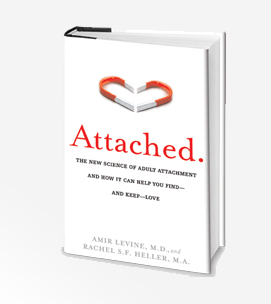Concerned, I found a counseling center and explained my troubles. Immediately, he handed me this book:

I'm a real sucker for social psychology, so being handed a book that could explain so prevalent an issue as relationships was like being handed a million dollars. Attached, written by a neuroscientist and a consultant with a master's in social-organizational psychology, outlines the different ways people deal with relationships and how each way helps or hurts relationships and the people involved. It's a clear cut guide with plenty of examples and explanation.
It starts off with pressing that dependency on other people is not a bad thing, and that any healthy relationships involves both parties caring and acting for the other's well being. It also details the three kinds of attachment styles that people have. You can see which you fall under taking an official quiz.
- Anxious: who draw closer to their partners and use tactics like the silent treatment to get attention.
- Avoidant: who push away to create an emotional distance and rely too much on the notion of self-reliance.
- Secure: who willing to stop and talk about their feelings instead of constantly pushing or pulling with no explanation why.
I fall under avoidant, because I close myself off when I meet someone I'm romantically interested in. Luckily no one is stuck in one attachment style. By practicing the principles of effective communication and trust, anyone can work things out. I find that these principles also work for any kind of relationship, be it with friends or with family.
Here they are, quoted directly from page 256 of the book.
- A single fight is not a relationship breaker.
- Express your fears! Don't let them dictate their actions. If you're afraid that s/he wants to reject you, say so.
- Don't assume you are to blame for your partner's bad mood. It is most likely not because of you.
- Trust that your partner will be caring and responsive and go ahead and express your needs.
- Don't expect your partner to know what you're thinking. If you haven't told him/her what's on your mind, s/he doesn't know!
- Don't assume you know what your partner means. When in doubt, ask.




















0 comments:
Post a Comment